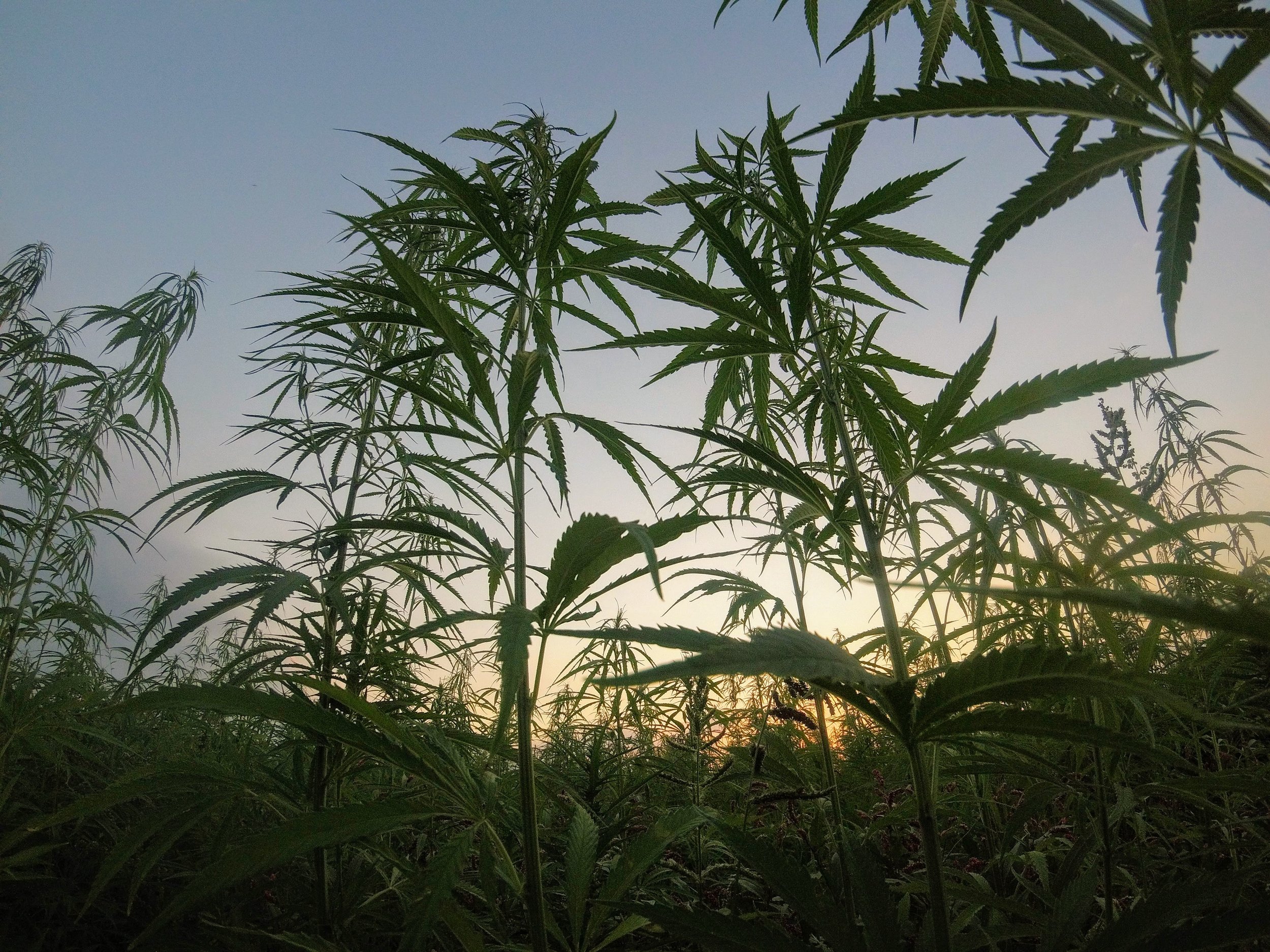
In the foggy beach town of Carpinteria on California’s central coast, also known as “The Flower Basket of the U.S.”, rows of greenhouses once filled with orchids, gerberas, and succulents are now occupied by a different sort of flowering plant – cannabis.
The tight-knit agricultural community is normally known for its neighborly ways, but that sentiment began to shift after 2016 when voters approved Proposition 64, establishing a regulated market for adult use cannabis, and putting properly zoned real estate like that found in Carpinteria on a very short list for those looking to establish large-scale cultivation operations.
Good fences, they say, make for good neighbors. But fences can only be built so high and so wide. Problems began, as they often tend to with cannabis, with loud anti-cannabis NIMBYs (Not In My Back Yard) complaining about “chemical”, “skunky”, or “rotten” aromas drifting from newly established cannabis farms to neighboring properties. As a result, many greenhouses in the region have been retrofitted with tens of thousands of dollars in odor-reduction/elimination technology that is more often used to mitigate the smell of waste materials, not multimillion dollar crops. Though these innovative systems are not explicitly required by the state in its regulatory framework, Prop 64 does give an extraordinary amount of power to local municipalities in determining what entities qualify for state licensure. From the start, the responsible cannabis growers in the region who have laid themselves bare to participate in an unknown post-prohibition market have demonstrated their desire to be “good neighbors” and to assimilate into the community at large.
But with the onset of spring, a new set of challenges have arisen in this once sleepy little valley off of the 101 freeway, and the consequences could have a lot of Californians complaining about cannabis if they don’t get the full story.
FIRST THEY CAME FOR OUR GUACAMOLE. . .
Carpenteria is home to over 2,200 acres of commercial avocado farms, fueling the state’s endless demand for the delicious green superfood. May is traditionally the time of year when avocado farmers (along with other traditional crops) in the region spray blends of pesticides to ensure a bountiful, and beautiful, crop free from the telltale scars of harmful insects.
This duty has always been handled by a small handful of specialized pest control companies based out of nearby Oxnard, and the process has never had a hold-up. . . until now. This year all of the companies typically contracted to spray the industry standard pesticides on local avocado farms have refused to do so, citing the potential liability should any of their product drift errantly onto a neighboring cannabis farm.

You see, the most popular and effective pesticide products approved for use on the avocados that we eat are all red-flagged as banned pesticides on commercial cannabis destined for the retail market. Cannabis, as we all well know, is subjected to far more in-depth laboratory testing than any other agricultural product, and a failed test showing a mere one part per billion of a banned pesticide in a cannabis product results in the mandatory destruction of that entire batch of cannabis. This can easily equate to a loss of $40,000-$50,000 or more.
When every single pest-control company uniformly refused to spray this year in Carpinteria based on potential liability with cannabis growers, of course, a lot of angry eyes turned to those growers as people’s livelihoods (and their precious $12 avocado toast at the local bistro) were put at risk.
 http://carpgrowers.org/
http://carpgrowers.org/
20 out of 27 Carpinteria-based cannabis growers have joined a local organization called Cannabis Association for Responsible Producers – or CARP Growers – whose stated mission is to “foster a positive relationship with the community of Carpinteria by promoting best practices among cannabis growers”.
For the past three years, members of this group have been cultivating cannabis in that valley and for the past three years cannabis-banned pesticides have been sprayed in the region. So far, no failed lab tests have come back for those banned pesticides for any of the member-growers involved with CARP.
Because of this, all 27 growers were willing to collectively sign a letter effectively indemnifying all local pest-control companies from liability or litigation while they sprayed other farms in the region.
In return, their requests seem pretty simple and awfully reasonable. In exchange for releasing these pest-control companies (as well as all of their neighbors) from legal liability, CARP Growers made three main requests:
-
That helicopters be used for pesticide application only up to a 100 foot buffer from any greenhouses. That 100 foot buffer could still have pesticides applied, but from ground level.
-
That growers be given a minimum of a 30 minute warning before any spraying commences in order to give them time to close their vents on their greenhouses.
-
That pest-control companies take environmental conditions like wind into account when spraying in order to minimize drift.
All 27 growers provided their full contact information to facilitate the agreement but suddenly the pest-control companies all pulled out of the agreement. Specifically they worry that the language of the agreement only covers the precise two week period during which the pesticides would be sprayed. It does not prevent any lawsuits from being filed during the other 50 weeks of the year. Despite the honest track record of the cannabis growers in the area so far, and despite a growing stack of passed lab tests, the pest-control companies do not dare risk having to pay for a 50lb batch of ash.
It’s no joke. Just last year a Carpinteria cannabis farmer sprayed a store-bought ant-killer in his office but the insects tracked traceable amounts of it back into his greenhouse resulting in the mandatory destruction of an entire crop. Nobody sued the ants and nobody is threatening to sue these companies but they have made a business decision that the risk suddenly outweighs the reward.
Instead, they are offering to spray an alternative pesticide not currently banned by the cannabis industry, but they admit that it is far less effective and takes multiple applications to have any use at all.
County Supervisor Das Williams, who lives in Carpinteria, summed it up best saying, “I’m not sure what more they can do. The cannabis folks have bent over backward and the lawyers are mucking it up.”
But even once this squabble is settled, aromas and pesticides are not the only problems potentially drifting through the sky in Santa Barbara County. Though the county has not accepted any commercial hemp cultivation applications yet, they are coming soon, and that will create an entirely new set of neighborly disputes already being seen in other parts of the state.
As we know, the act of growing high grade cannabis is a constant attempt at frustrating the female cannabis plant in order to encourage heightened resin production. That sticky, gooey, cannabinoid filled resin accumulates in hopes of snagging wayward airborne male pollen. If it succeeds, you failed, and you get a seeded plant. The longer a grower can force that frustration, the more lucrative their harvest will be. Having just one male hemp plant in the ground anywhere within a 10-20 mile radius creates a legit threat of accidental pollination – just as dangerous as any bug or bug-killer.
Unlike cannabis, hemp is protected by federal “Right to Farm” laws and is not burdened by the heavy restrictions that cannabis growers must deal with. It can still put off a pungent aroma but would never be subjected to calls for expensive odor-control machinery as it will never be grown indoors or in a greenhouse environment. This low bar of entry into hemp farming runs the risk of weaponizing the plant in places like Carpinteria where frustrated cannabis farmers have joked of “carpet bombing” the region with the stinkiest hemp plants known to mankind, while spiteful wineries and NIMBYs contemplate hedging their property lines with male hemp plants and letting the breeze wreak havoc for them.

It should come as no surprise that we stand behind the growers in Santa Barbara County. As the County Supervisor stated, the growers have gone the extra mile to be good members of the community on top of unprecedented regulations from the state that they must abide by to get licensed and remain compliant.
When it comes to odors, have you ever driven anywhere near Gilroy, California? The godawful stench of garlic will peel the clearcoat off your car just driving through. How about that massive Purina dog food factory in Denver? Everything for miles around reeks of kibble. Out in Coalinga where many cannabis cultivators have been forced to operate, ‘overpowering’ does not even begin to describe the permeating bouquet of bovine bowel movements.
In the pesticide debate, CARP Growers laid out a straightforward and easily workable agreement that, if nothing else, could have served as a place to begin discussing a solution and their negotiating partner walked away from the table. Yes, the growers and pest-control companies had an unspoken truce for the past few years but everything changed with the implementation of Phase 3 lab testing standards on the California cannabis industry on January 1st of this year. The growers are trying to cover all bases to ensure a safe harvest and their proposed agreement seems like a fair and honest request. Tensions are high for licensees trying to survive in this uncharted, over-regulated industry and we’re seeing that tension begin to drift across communities like the sweet, sweet smell of fresh cannabis in the breeze.
Keep updated on all the latest news and updates in the Cannabis industry here at Beard Bros Pharms by signing for our Friday Sesh Newsletter here. Always Dank and Never Spam!


















